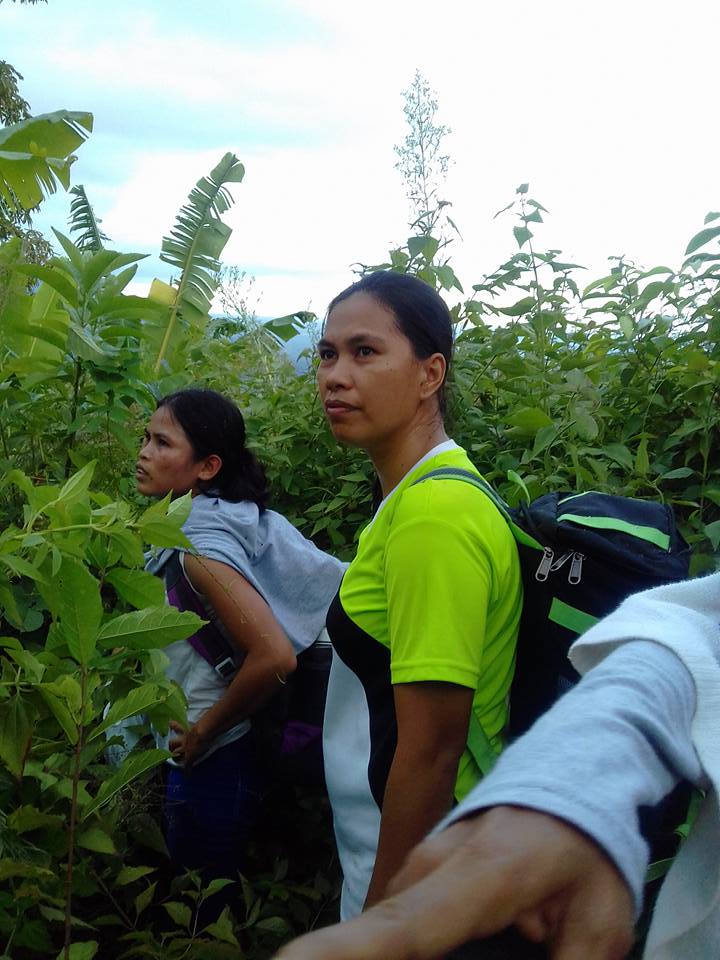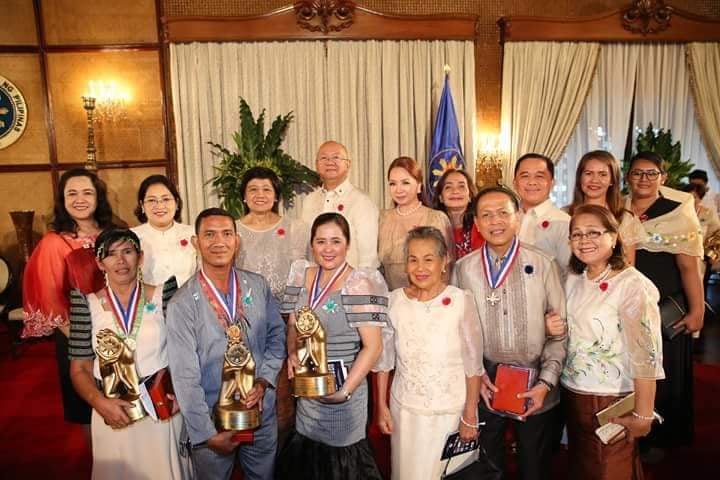Laurensa Joldanero (1st person from the left, front row) and her fellow awardees winning the 2018 Dangal ng Bayan award given to those who have significantly improved the lives of fellow Filipinos through their various accomplishments and display of exemplary behavior. Joldanero’s volunteer work with Movement Against Malaria has significantly improved awareness and treatment of malaria in her area.
In celebration of its 40th anniversary, Pilipinas Shell Petroleum Corporation’s social arm, the Pilipinas Shell Foundation, Inc. (PSFI) looks back at one of its major initiative, Movement Against Malaria (MAM), which has been instrumental in reducing the number of cases of malaria in the country and saving many Filipino lives for more than two decades. Two volunteers— Laurensa Joldanero from San Jose, Occidental Mindoro and Lilibeth Mansuri from Brooke’s Point, Palawan—shared their experiences of how MAM made a difference in the concerned communities.
Founded in 1999 and first known as Kilusan Ligtas Malaria (KLM), MAM succeeded in Palawan before spreading to other parts of the Philippines, providing malaria testing, awareness, prevention, and treatment. Malaria is a parasitic disease commonly transmitted through mosquito bites which, if left untreated, could lead to fever, chills, pain, vomiting, and death.
Prior to the start of MAM, the Palawan Provincial Office recorded 77,189 cases and 103 deaths in 1998. During that time, there was no proper diagnosis of patients in the region, and some patients were treated only for the symptoms. MAM’s continuous efforts to battle the disease resulted in a drop of cases to 4,266 cases and three deaths for the entire country in 2021.
Joldanero initially was assigned as a midwife in Labangan, Poblacion who accompanied local government officials in doing health checks in many areas. She describes how the people were not even aware of the name of the medical condition before the implementation of the program.

Joldanero said, “Noon kinwento ng mga ninuno na akala nila na regular na lagnat lang. Maraming namatay dahil sa malaria pero hindi nila alam na yun yung pangalan ng sakit.” (The elders said back then they thought what was spreading was just a regular fever. A lot of patients actually died of malaria, but the people didn’t know the name of the disease at that time).
The mountainous geography made bringing proper medical aid to those who lived in secluded areas a challenge for MAM. Volunteers like Mansuri were needed to not only administer treatment but explain how to deal with malaria. “Malaking bagay ito na nag-volunteer ako bilang isang health worker para maka rapid diagnostic tests (RDT), makadala ng gamot at mag-translate sa linguahe nila. Para mas naiintidihan nila ang kahalagahan ng programang ito,” (It’s a big deal that I volunteered as a health worker to do rapid diagnostic tests (RDT), deliver the medicines, and translate the information into their language. We did that so the people can better understand the importance of this program,) said Mansuri.
The information that MAM gave about malaria was equally critical to the campaign’s success in the communities. Mansuri, who volunteered to do borderline spraying and information dissemination during the PSFI seminars, recounts, “Ngayon, pag may nararamdaman sila na symptoms, lumalapit na sila kaagad sa malaria personnel, dahil mas may alam na ang mga tao tugkol sa malaria.” (Now when the people feel any symptoms, they immediately approach the malaria personnel because they already know more about malaria.)
Access to information also increased volunteerism. Joldanero said, “Ngayon na nakita nila yung mga magandang benefit ng programang ito, sila rin sumasama at nagtutulong pag nag-borderline spraying.” (Now that they have seen the good benefits of this program, they also join and help do borderline spraying.)
MAM is just one among the different health and safety programs of PSFI which has been actively engaged in other health care initiatives. Among them is the HIV-AIDS program which was created in response to the growing epidemic in the country. With the cooperation of partners from Local Government Units (LGUs), schools and the business sector, access to HIV services increased. As of 2020, a total of 13,696 individuals have been tested, 309 HIV testing activities have been conducted at workplaces, schools, and communities, and 13,387 tested in supported community centers.
PSFI has always believed that good health and well-being enable people to become better contributors to society. This drives its goal of contributing towards making the Philippines a resilient country through programs that focus on health and safety, education, and health care.

